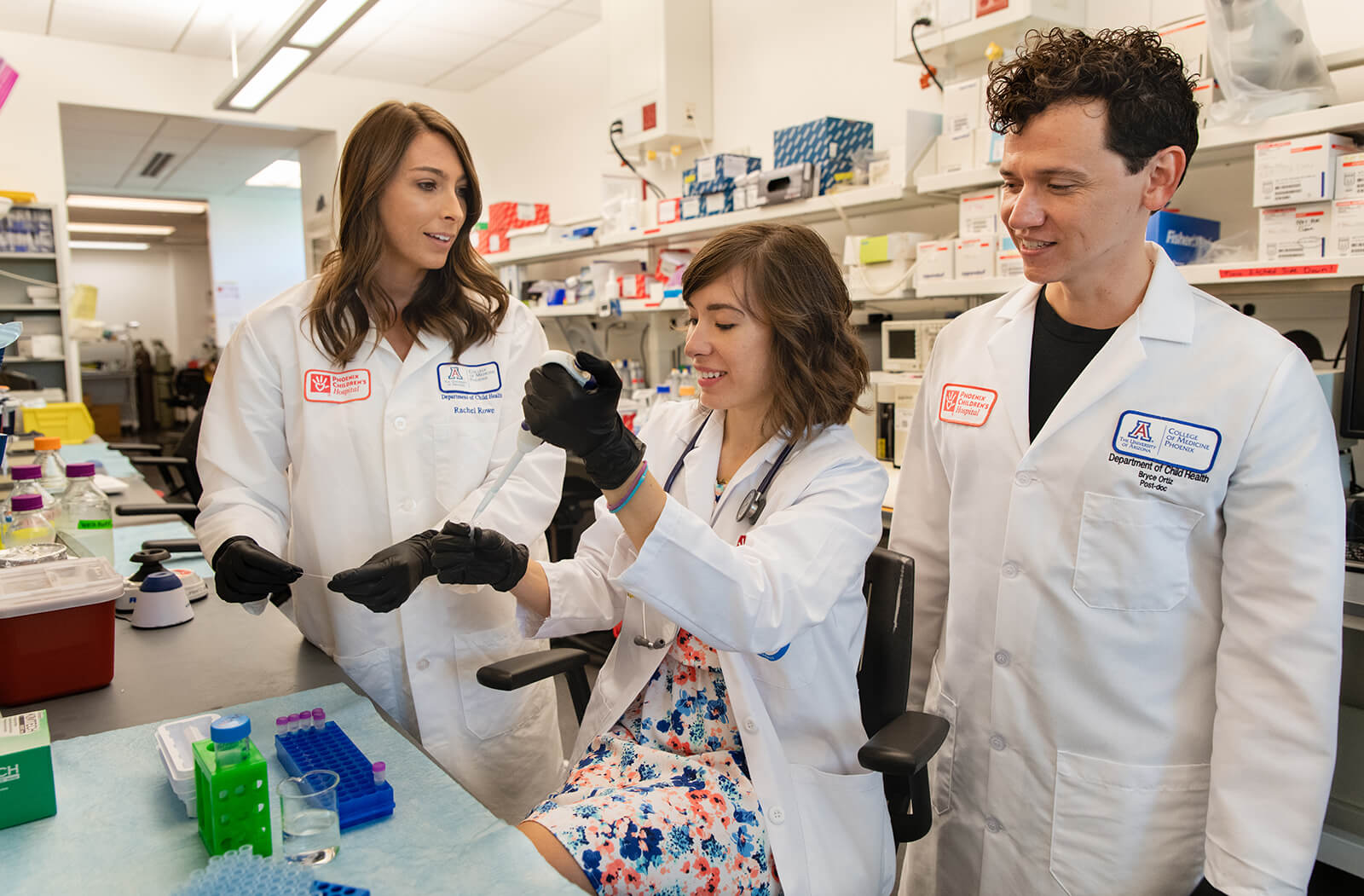
First State-Wide Study Reveals Pediatric TBI Patients at Greater Risk of Endocrine Disorder

A new study revealed the potential impact of pediatric traumatic brain injury (TBI) on the endocrine system that regulates hormones. This is the first state-wide study that showed pediatric patients with TBIs are at a higher risk of being diagnosed with a central endocrinopathy — endocrine and hormone disorder — than the general public.
TBIs usually result from a violent blow or jolt to the head or body. In children, TBIs account for more than 812,000 emergency department visits every year and are a leading cause of childhood mortality and morbidity in the U.S.
The Translational Neurotrauma Research Program at Barrow Neurological Institute at Phoenix Children's Hospital and the University of Arizona College of Medicine – Phoenix published a peer-reviewed manuscript that analyzed the risk of developing a hypothalamic-pituitary disorder after a TBI in the pediatric population. The study was led by J. Bryce Ortiz, PhD, a postdoctoral researcher at the College of Medicine – Phoenix, and Alona Sukhina, MD, a pediatrics resident at Phoenix Children’s Hospital. It was published January 22, 2020, in Frontiers in Neurology.

Those who survive pediatric TBIs show high incidence of health issues. In particular, TBIs have shown to disrupt the endocrine system in adults, however, this had not been well documented in pediatrics.
The published study analyzed the State of Arizona health records for children, supported by the Arizona Health Care Cost Containment System (AHCCCS; Arizona Medicaid), who suffered a TBI and were later diagnosed with an endocrine disorder not previously reported. Over a five-year period, 498 children were identified, where the range of time between TBI and endocrine disorder was days to years.
Their findings revealed pediatric AHCCCS patients with a central endocrine diagnosis had a 3.2-fold higher odds of a history of a TBI diagnosis than those without an endocrine diagnosis. Furthermore, female subjects were more likely to present with a central endocrine diagnosis after a TBI diagnosis compared to male subjects. Research showed that for every 151 children diagnosed with a TBI, at least one would develop a hypothalamic-pituitary disorder.
“Considering the precious little time for childhood development, a delay in recognizing endocrine dysfunction can leave individuals with a lifetime of additional health care issues and costs,” Dr. Lifshitz said. “Further, the endocrine disorders are easily treatable by endocrinologists.”
He added that when a TBI affects the endocrine system and associated hormone regulation, the downstream effects can include dysregulation of blood sugar, body weight or blood pressure, preventing them from fully concentrating and learning in school, reaching their potential height and even delaying puberty.
The authors of the study recommend that doctors, nurses and all practitioners should screen children with TBI for endocrine disorders within six months of the injury, as it may affect many aspects of their life. Additionally, parents, grandparents and loved ones should be aware that TBI can not only affect a child’s concentration and mood, but also can affect the hormone system of the body, and call attention to these changes when bringing them to the doctor.
About the College
Founded in 2007, the University of Arizona College of Medicine – Phoenix inspires and trains exemplary physicians, scientists and leaders to advance its core missions in education, research, clinical care and service to communities across Arizona. The college’s strength lies in our collaborations and partnerships with clinical affiliates, community organizations and industry sponsors. With our primary affiliate, Banner Health, we are recognized as the premier academic medical center in Phoenix. As an anchor institution of the Phoenix Bioscience Core, the college is home to signature research programs in neurosciences, cardiopulmonary diseases, immunology, informatics and metabolism. These focus areas uniquely position us to drive biomedical research and bolster economic development in the region.
As an urban institution with strong roots in rural and tribal health, the college has graduated more than 1,000 physicians and matriculates 130 students each year. Greater than 60% of matriculating students are from Arizona and many continue training at our GME sponsored residency programs, ultimately pursuing local academic and community-based opportunities. While our traditional four-year program continues to thrive, we will launch our recently approved accelerated three-year medical student curriculum with exclusive focus on primary care. This program is designed to further enhance workforce retention needs across Arizona.
The college has embarked on our strategic plan for 2025 to 2030. Learn more.